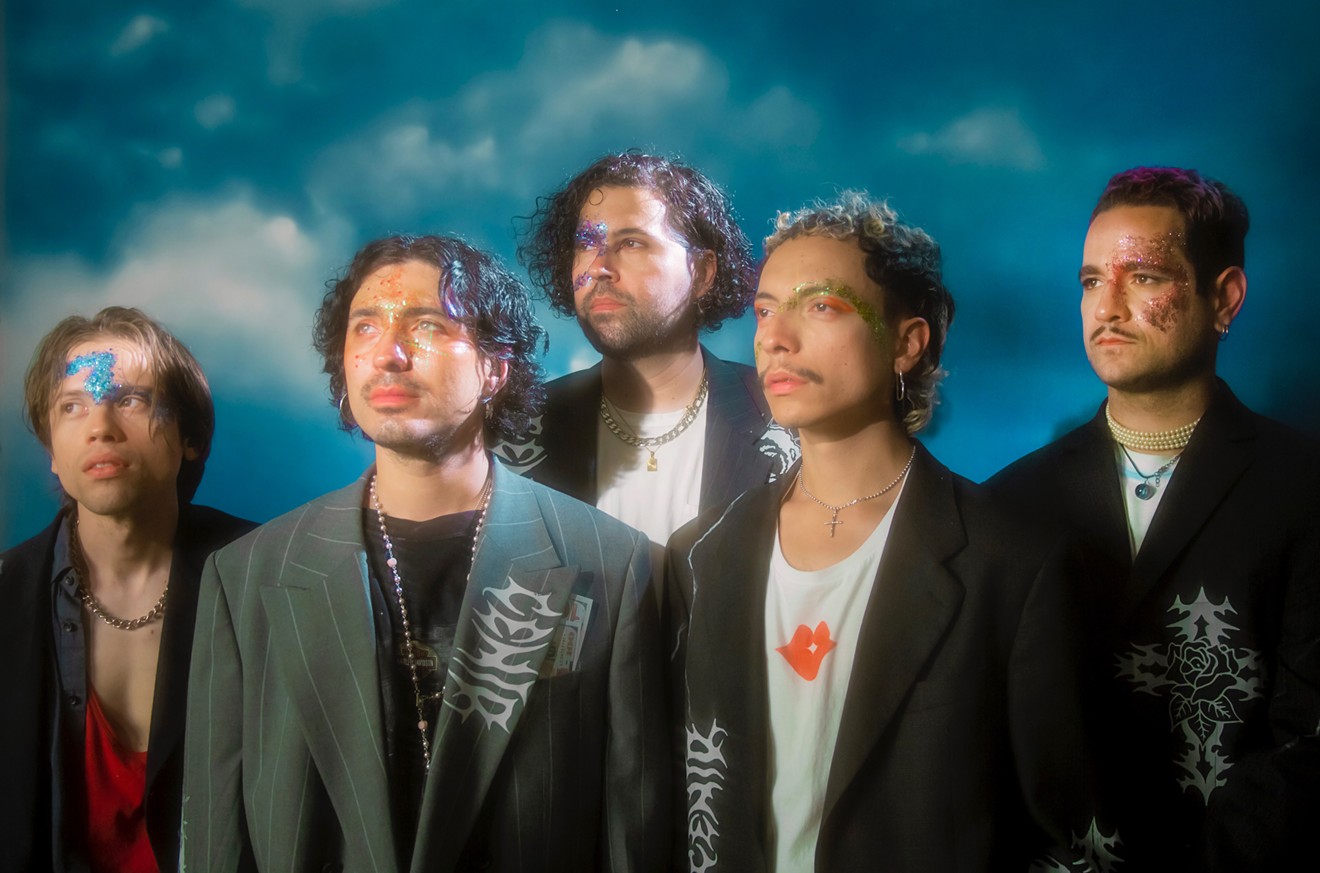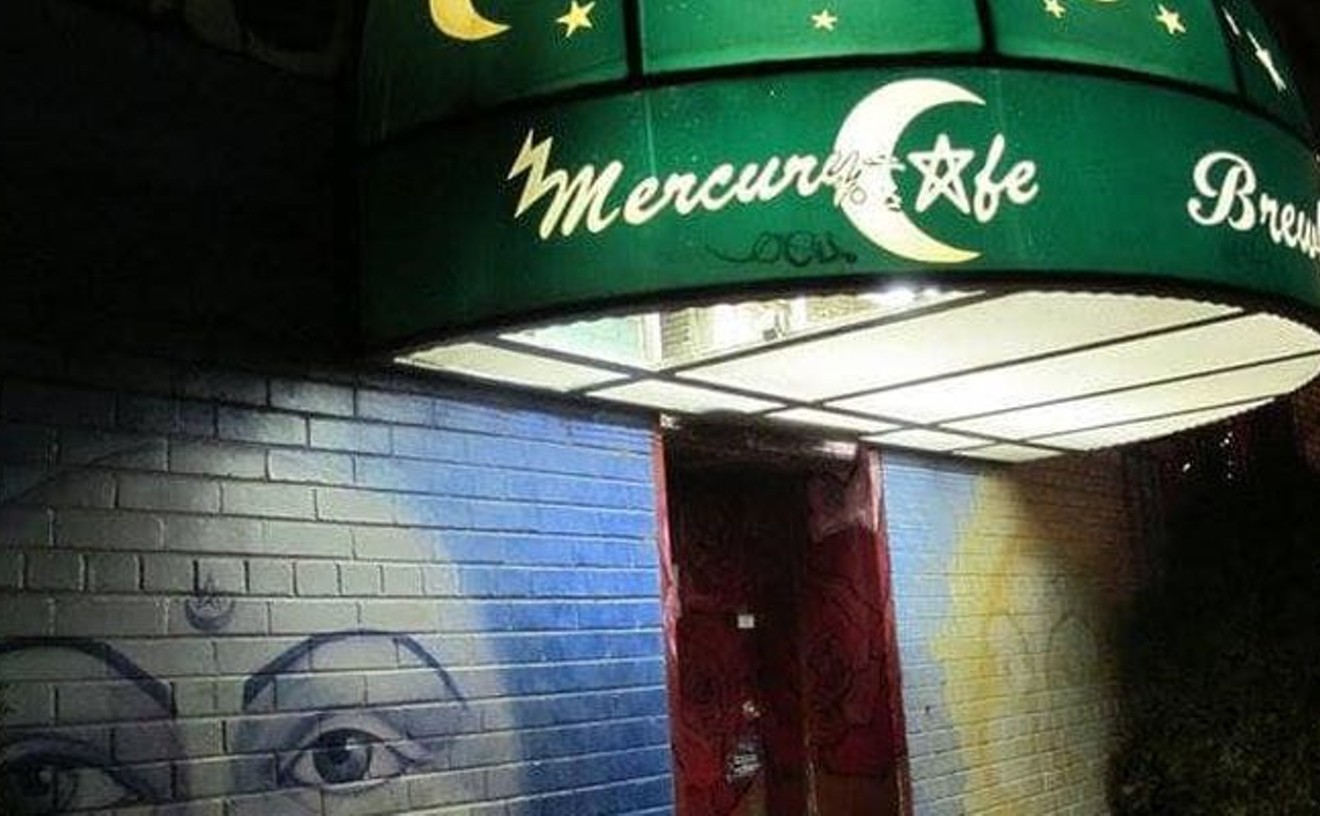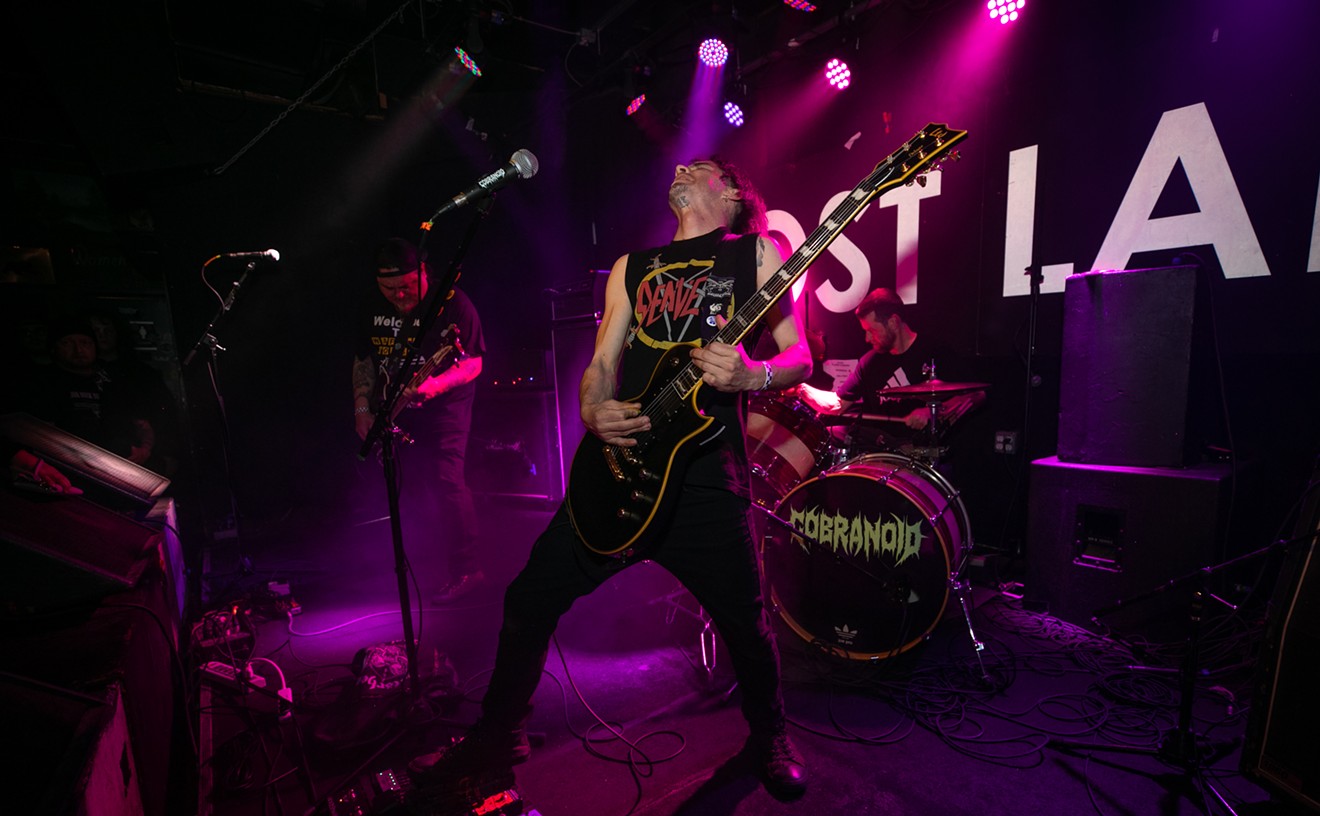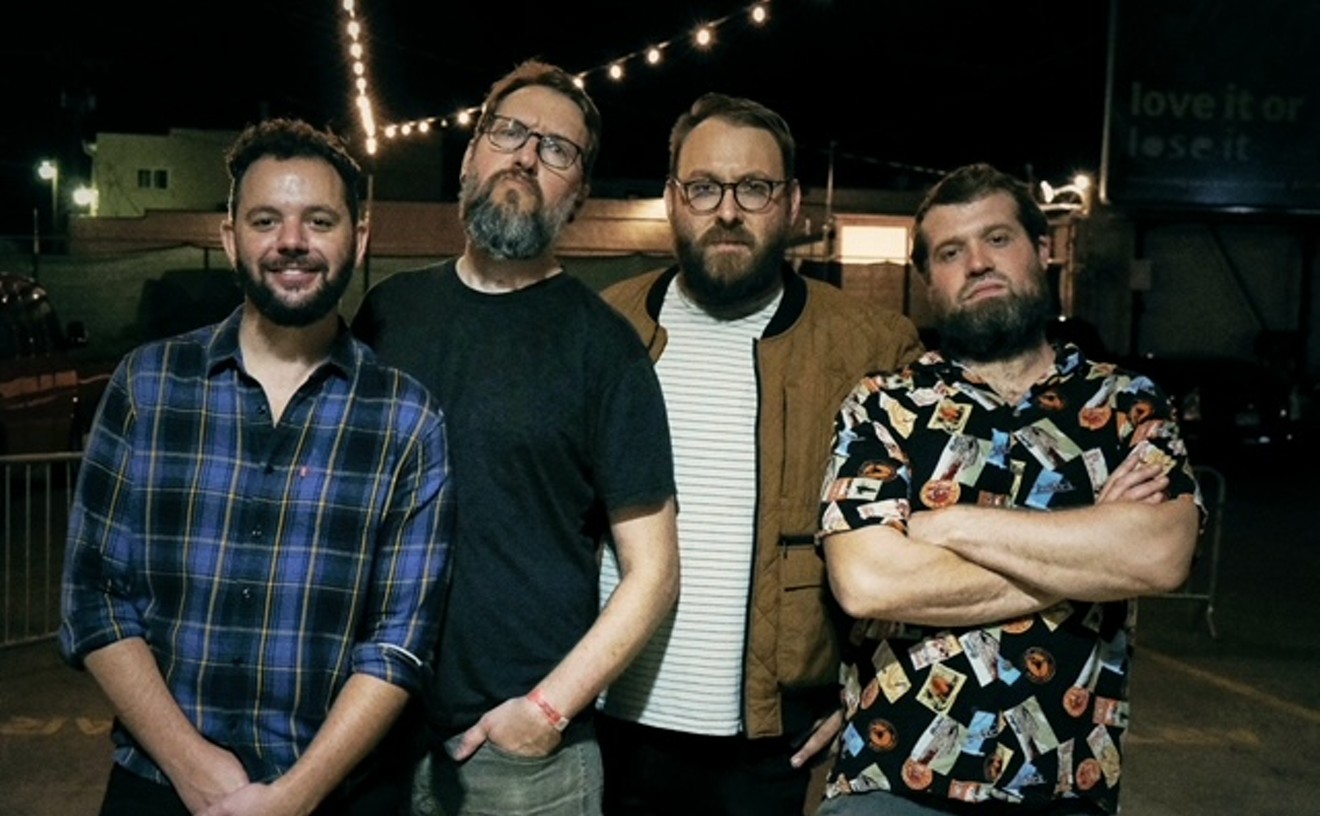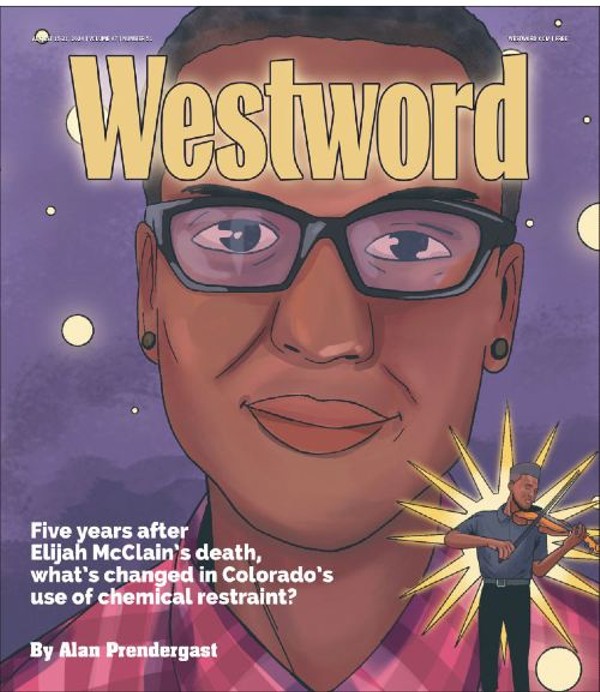Javier Forero and his fellow Divino Niño members were recording what would become The Last Spa on Earth while hunkered down in a cabin somewhere in Wisconsin at the height of the pandemic lockdown. That’s where the Chicago-based band came up with the somewhat oddball yet wholly intriguing title of its second full-length album.
“Everything just felt kind of apocalyptic,” Forero recalls. “Justin [Vittori] was playing some industrial jazz chords. Guillermo [Rodriguez-Torres] had a spoken-word thing, and he was saying something like, ‘This is the last spa on earth.’”
Forero says the band began to build a concept around the idea of a mystical spa with different rooms that offer different lessons or treatments to cure specific struggles in life. The record addresses, among other themes, self-liberation, being more honest with yourself and letting go of things that hold you back.
“Some of the themes that go into the album are reflecting on childhood, parents, who you grew up with,” he says. “There’s a lot of stuff in there, but ‘Papelito’ talks about ripping into life and floating like a paper and going through life like that.”
Meanwhile, “Toy Premiado” addresses how what you're told about life and how you should live it might not necessarily be the case, and a person should find his own path
“You have to get a 9 to 5, and you have to buy a house, and you have to retire by this time,” he says. “Sometimes maybe that’s not someone’s vision, and the realization is you should do what you want. If you want to sit around and think like a dummy, then that’s what you should do.”
Forero and bandmate Camilo Medina take music influences from a wide swath of geographical locations. Both men spent some of their childhoods in Bogatá, Colombia, and knew each other as kids. Forero started playing punk and metal as a young man in Miami, and later attended college in Chicago. There, Divino Niño came together and soaked up that city’s indie-rock scene, but he and Medina, who also came to Chicago, began to explore classic-rock bands, too.
“We didn’t get into the Beatles until we were, like, 21,” he says. “Now we're coming back around to what we grew up on in Miami, which is dance music, reggaetón. We still like hardcore.”
Divino Niño, which plays the Marquis Theater with Little Jesus on Tuesday, October 11, sometimes gets tagged with the dream-pop genre designation, but the band’s heavy Latin music influences set it apart from other bands carrying that label. The Latin sound has come more recently, he says, but the influence was always there.
“We grew up around the music our parents used to listen to, like traditional Colombian music,” he says. “Miami is very Latin American. … We grew up always kind of knowing it but never paying attention to it.”
He notes that sitting around during the pandemic, effectively losing a few years of life, allowed people to look within. That’s when Forero and his bandmates began to appreciate the rich musical heritage that really distinguishes their sound, and keeps them from being just another Chicago indie-rock or dream-pop outfit.
“You realize, ‘Wow, this is where I come from, and this is who I am,’” he says. “I don’t need to hide it. I don’t need to be someone else who I’m not.”
While working out its sound, Divino Niño has taken in a wide swath of Latin American music that stretches well beyond its members’ Colombian and south Florida roots. The band also employs bachata, a dance rhythm that originated in the Dominican Republic.
Members write bilingually — Forero likens it to painting with more than one color — but most of the songs on the new record are entirely in Spanish. The switch happened naturally, as the bandmates discovered some music from Argentina and Puerto Rico and decided to try their hand at writing in Spanish. It aligns with the record's theme of being more honest with yourself, as well: Spanish is some of the members' first language, and writing in it freed them up to really nail down the sound they wanted.
The new direction flew in the face of what they previously thought they needed to be when they were part of the Chicago music scene. “What was going on at the time was a lot of folk music and bands like Mild High Club or Whitney,” Forero explains. “This was our way of saying, ‘Hey, this is cool, but we need to figure out what our voice is.’”
Do the bandmates think they have achieved that? “Art grows with you,” Forero answers. “This record is definitely what we were feeling at the time, and what we wanted to say. Who knows? Maybe the next record will be back to writing in English. There is always work to be done in the journey of making art.”
Divino Niño, 7 p.m. Tuesday, October 11, Marquis Theater, 2009 Larimer Street. Tickets are $20.

Audio By Carbonatix
[
{
"name": "Air - MediumRectangle - Inline Content - Mobile Display Size",
"component": "12017618",
"insertPoint": "2",
"requiredCountToDisplay": "2",
"watchElement": ".fdn-content-body",
"astAdList": [
{
"adType": "rectangle",
"displayTargets": "mobile"
}
]
},{
"name": "Editor Picks",
"component": "17242653",
"insertPoint": "4",
"requiredCountToDisplay": "1",
"watchElement": ".fdn-content-body",
"astAdList": [
{
"adType": "rectangle",
"displayTargets": "desktop|tablet"
},{
"adType": "rectangle",
"displayTargets": "desktop|tablet|mobile"
}
]
},{
"name": "Inline Links",
"component": "18838239",
"insertPoint": "8th",
"startingPoint": 8,
"requiredCountToDisplay": "7",
"maxInsertions": 25
},{
"name": "Air - MediumRectangle - Combo - Inline Content",
"component": "17261320",
"insertPoint": "8th",
"startingPoint": 8,
"requiredCountToDisplay": "7",
"maxInsertions": 25,
"watchElement": ".fdn-content-body",
"astAdList": [
{
"adType": "rectangle",
"displayTargets": "desktop|tablet"
},{
"adType": "rectangle",
"displayTargets": "desktop|tablet|mobile"
}
]
},{
"name": "Inline Links",
"component": "18838239",
"insertPoint": "8th",
"startingPoint": 12,
"requiredCountToDisplay": "11",
"maxInsertions": 25
},{
"name": "Air - Leaderboard Tower - Combo - Inline Content",
"component": "17261321",
"insertPoint": "8th",
"startingPoint": 12,
"requiredCountToDisplay": "11",
"maxInsertions": 25,
"watchElement": ".fdn-content-body",
"astAdList": [
{
"adType": "leaderboardInlineContent",
"displayTargets": "desktop|tablet"
},{
"adType": "tower",
"displayTargets": "mobile"
}
]
}
]

